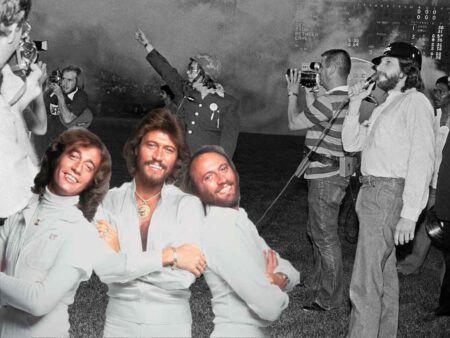When Jerry Wexler first heard Duane Allman’s fiery guitar solo on Wilson Pickett’s version of Hey Jude, he knew something extraordinary was happening. Duane wasn’t yet a household name—he wasn’t even in a band. But what he had was unmistakable: a tone that could wail, weep, and roar all at once. It was the sound that would help shape the Allman Brothers Band, anchor the Southern rock movement, and leave a deep imprint on modern blues and rock.
Duane Allman’s story is not just about guitar mastery—it’s about an artist whose brief but brilliant career altered the course of American music.
Contents
A Studio Bet That Paid Off
Duane’s breakout moment came at Muscle Shoals’ FAME Studios in Alabama. While working with producer Rick Hall, he convinced Wilson Pickett to cover The Beatles’ Hey Jude. Duane’s electrifying slide solo transformed the track—and caught the attention of Wexler, then an executive at Atlantic Records.
Impressed by the guitarist’s raw gift, Wexler purchased Allman’s contract from Hall for $15,000. It was an unusual move at the time—Duane had yet to front a band or even record a solo vocal. But Wexler saw potential that couldn’t be taught. That investment would soon pay off.
With backing from Capricorn Records founder Phil Walden and Atlantic’s distribution power, Duane formed the Allman Brothers Band—soon to become the flagship of Southern rock.
A Sound Like No Other
Ask any guitarist: Duane Allman’s tone was instantly recognizable. He favored a 1957 Gibson Les Paul Goldtop and a 1961 Gibson SG, played through roaring Marshall amps and JBL speakers for live gigs. In the studio, he sometimes switched to a Fender Stratocaster through a Twin Reverb amp.
But what really set him apart was his slide guitar technique. Using a glass Coricidin pill bottle, Duane crafted soaring, vocal-like lines that blended Delta blues traditions with a modern edge. He famously refused to modify his gear. The sound, he insisted, was in the hands—and his were fearless.
The Sideman Who Stole the Show
Before becoming a bandleader, Duane was a studio ace. His guitar graced tracks by Aretha Franklin, King Curtis, Boz Scaggs, Delaney & Bonnie, and many others. He added fire to every session, including a now-iconic collaboration with Eric Clapton on Layla and Other Assorted Love Songs.
His musical generosity was also evident off the clock. Fellow session player Eddie Hinton credited Duane with teaching him slide guitar—just one example of how Allman shared as much as he absorbed.
Colleagues and producers often spoke of his insatiable love of music, his hunger to keep learning, and the way he elevated everyone in the room.
A Style as Wide as the South
Duane’s sound was rooted in the blues but stretched far beyond. He absorbed jazz from Miles Davis and John Coltrane, studied the country licks of Hank Garland and Chet Atkins, and even explored bossa nova and bebop. He blended genres with instinct and authenticity, never losing sight of the emotional core.
His playing was melodic yet muscular, refined yet raw—always anchored in the traditions of the American South but never confined by them.
Brothers in Arms
In 1969, the Allman Brothers Band came to life: Duane and his brother Gregg, guitarist Dickey Betts, bassist Berry Oakley, and dual drummers Butch Trucks and Jai Johanny Johanson. They relocated to Macon, Georgia, under the Capricorn Records banner.
The band’s self-titled debut and its follow-up, Idlewild South, hinted at greatness. But it was 1971’s At Fillmore East—a live double album packed with improvisational brilliance—that secured their place in history. Duane’s solos on tracks like “Whipping Post” were nothing short of transcendent.
A Flame That Burned Too Fast
On October 29, 1971, Duane Allman died in a motorcycle accident in Macon. He was just 24.
Despite his short life, his influence has only grown. He was inducted into the Georgia Music Hall of Fame in 1982 and the Rock and Roll Hall of Fame with the Allman Brothers Band in 1995. Guitarists across generations—from Derek Trucks to Warren Haynes—still cite him as a major inspiration.
Still Calling Us Back
Duane Allman didn’t rely on flash or effects. He chased something deeper: tone, emotion, connection. The kind of sound that cuts through time and speaks directly to the soul.
As those close to him recalled, you didn’t need a musical education to understand what made him special. You just had to listen—and feel it.




